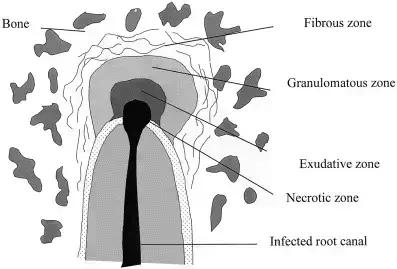- Home
- Medical news & Guidelines
- Anesthesiology
- Cardiology and CTVS
- Critical Care
- Dentistry
- Dermatology
- Diabetes and Endocrinology
- ENT
- Gastroenterology
- Medicine
- Nephrology
- Neurology
- Obstretics-Gynaecology
- Oncology
- Ophthalmology
- Orthopaedics
- Pediatrics-Neonatology
- Psychiatry
- Pulmonology
- Radiology
- Surgery
- Urology
- Laboratory Medicine
- Diet
- Nursing
- Paramedical
- Physiotherapy
- Health news
- Fact Check
- Bone Health Fact Check
- Brain Health Fact Check
- Cancer Related Fact Check
- Child Care Fact Check
- Dental and oral health fact check
- Diabetes and metabolic health fact check
- Diet and Nutrition Fact Check
- Eye and ENT Care Fact Check
- Fitness fact check
- Gut health fact check
- Heart health fact check
- Kidney health fact check
- Medical education fact check
- Men's health fact check
- Respiratory fact check
- Skin and hair care fact check
- Vaccine and Immunization fact check
- Women's health fact check
- AYUSH
- State News
- Andaman and Nicobar Islands
- Andhra Pradesh
- Arunachal Pradesh
- Assam
- Bihar
- Chandigarh
- Chattisgarh
- Dadra and Nagar Haveli
- Daman and Diu
- Delhi
- Goa
- Gujarat
- Haryana
- Himachal Pradesh
- Jammu & Kashmir
- Jharkhand
- Karnataka
- Kerala
- Ladakh
- Lakshadweep
- Madhya Pradesh
- Maharashtra
- Manipur
- Meghalaya
- Mizoram
- Nagaland
- Odisha
- Puducherry
- Punjab
- Rajasthan
- Sikkim
- Tamil Nadu
- Telangana
- Tripura
- Uttar Pradesh
- Uttrakhand
- West Bengal
- Medical Education
- Industry
Patients of autoimmune diseases at high risk of developing apical periodontitis

Patients of autoimmune diseases at high risk of developing apical periodontitis suggests a new study published in the International Endodontic Journal
The prevalence of AP was 89.9% in AD patients and 74.2% in control subjects
The DMFT score was found to be significantly higher in the AD group
Patients with RA had the highest risk of being affected by AP, whereas those with IBD had the lowest risk. Multiple binary logistic regression analysis indicated that the teeth of AD patients who were not taking any medication or were being treated with biologic disease-modifying anti-rheumatic drugs (bDMARDs) had a higher risk of being affected by AP than did the teeth of the control subjects
The teeth of patients taking conventional DMARDs (cDMARDs) were less affected by AP compared with those of patients taking bDMARDs.
Patients with AD, whether treated or not with biologic medications, showed a higher prevalence of AP than did those in the control group. The DMFT index score, which was higher in AD patients compared with controls was identified as a significant predictor of AP prevalence.
Reference:
Allihaibi, M., Niazi, S.A., Farzadi, S., Austin, R., Ideo, F., Cotti, E. et al. (2023) Prevalence of apical periodontitis in patients with autoimmune diseases: A case-control study. International Endodontic Journal, 00, 1– 11. Available from: https://doi.org/10.1111/iej.13902
Keywords:
International Endodontic Journal, Patients, autoimmune, diseases, high risk, developing, apical periodontitis, Allihaibi, M., Niazi, S.A., Farzadi, S., Austin, R., Ideo, F., Cotti, E.
Dr. Shravani Dali has completed her BDS from Pravara institute of medical sciences, loni. Following which she extensively worked in the healthcare sector for 2+ years. She has been actively involved in writing blogs in field of health and wellness. Currently she is pursuing her Masters of public health-health administration from Tata institute of social sciences. She can be contacted at editorial@medicaldialogues.in.
Dr Kamal Kant Kohli-MBBS, DTCD- a chest specialist with more than 30 years of practice and a flair for writing clinical articles, Dr Kamal Kant Kohli joined Medical Dialogues as a Chief Editor of Medical News. Besides writing articles, as an editor, he proofreads and verifies all the medical content published on Medical Dialogues including those coming from journals, studies,medical conferences,guidelines etc. Email: drkohli@medicaldialogues.in. Contact no. 011-43720751


